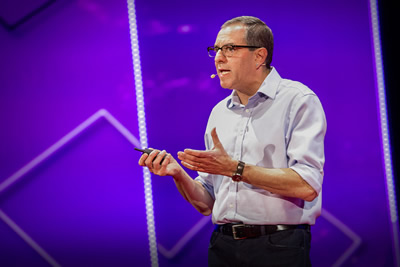Written by David Autor, MIT Department of Economics
The industrialized world is undergoing rapid employment growth.
A May 2019 cover story in The Economist magazine declared that “most of the rich world is enjoying a jobs boom of unprecedented scope.”[1]
Nonetheless people throughout the industrialized world are pessimistic about the future of work. In 2018, the Pew Research Center found that between 65 and 90 percent of those surveyed in advanced economies believe that robots and computers will probably or definitely take over many jobs now done by humans.[2]
The possibility that machines may eliminate jobs is not bad news if these technologies deliver higher living standards. But the Pew survey makes clear that citizens do not expect to benefit: most people believe that automation will exacerbate inequality between rich and poor while making jobs harder to find. Less than one third of those surveyed believe that new, better-paying jobs will emerge.
Why, after a decade of rising employment, are people pessimistic about job prospects? One possibility is that the avalanche of alarmist “end of work” newspaper articles, books, and expert reports have overwhelmed the facts. Perhaps, in the words of the Economist, “the zeitgeist has lost touch with the data.”
Alternatively, public pessimism may reflect the hard-learned lessons of recent history. Citizens may worry that the introduction of new technologies with human-like capabilities will generate enormous wealth for a minority while diminishing opportunity, upward mobility, and shared prosperity for the rest of us.
Economic history confirms that this sentiment is neither ill-informed nor misguided. There is ample reason for concern about whether technological advances will improve or erode employment and earnings prospects for the bulk of the workforce. The last four decades of economist history in industrialized countries reveals a startling disconnect between rising productivity and stagnant incomes for large fractions of the workforce. The challenge is not too few jobs. Instead, it is the quality and accessibility of the jobs that will exist and the career trajectories that they offer to workers, particularly to those with less education.
New and emerging technologies will raise aggregate economic output and boost the wealth of nations. Accordingly, they offer the potential for citizens to realize higher living standards, better working conditions, greater economic security, and improved health and longevity.
But whether nations and their populations realize this potential depends on the institutions of governance, societal investment, education, law, and public and private leadership to transform aggregate wealth into greater shared prosperity instead of rising inequality. By enacting far-sighted policies to invest in their citizens, protect and augment workers, and shape not just the speed but also the direction of innovation, nations can cultivate this historic opportunity to generate broadly shared prosperity. These opportunities are within our grasp, but they are far from inevitable. The future will not care of itself.
[1] The Economist. 2019. “Across the Rich World, an Extraordinary Jobs Boom Is under Way,” May 23, 2019. https://www.economist.com/briefing/2019/05/23/across-the-rich-world-an-extraordinary-jobs-boom-is-under-way.
[2] Richard Wike and Bruce Stokes. “In Advanced and Emerging Economies Alike, Worries About Job Automation.” Pew Research Center’s Global Attitudes Project, September 13, 2018 https://www.pewresearch.org/global/2018/09/13/in-advanced-and-emerging-economies-alike-worries-about-job-automation/.
Science, technology and innovation can be catalysts for achieving the sustainable development goals.
In the context of the UN Commission on Science and Technology for Development, the CSTD Dialogue brings together leaders and experts to address this question and contribute to rigorous thinking on the opportunities and challenges of STI in several crucial areas including gender equality, food security and poverty reduction.
The conversation continues at the annual session of the Commission on Science and Technology for Development and as an online exchange by thought leaders.


